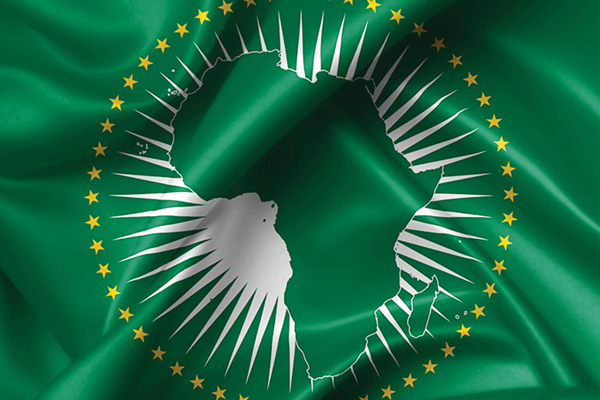
According to Africa Economic Outlook Report 2016, Africa’s economic growth remained resilient in 2015, amid a weak global economy, lower commodity prices and adverse weather conditions in some parts of the continent.
BY KUDZAI GOREMUSANDU
Real gross domestic product grew by an average of 3,6% in 2015, higher than the global average growth of 3,1% and more than double that of the European area.
At this growth rate, Africa remained the second fastest growing economy in the world (after emerging Asia), and several African countries were among the world’s fastest growing economies.
Africa real gross domestic product will grow at a projected rate of 3,7 % in 2017.
Growth remained highest in East Africa, followed by West Africa and Central Africa, and is lowest in Southern Africa and North Africa.
The region’s strong growth performance in 2015 was widespread, with many countries achieving growth of more than 5% (Djibouti, Ethiopia, Kenya, Rwanda, Tanzania and Uganda) and expected to continue on a high growth path in 2016/17.
The resilience in Africa’s growth is partly owed to domestic factors, including private consumption, public infrastructure development and private investment.
- Chamisa under fire over US$120K donation
- Mavhunga puts DeMbare into Chibuku quarterfinals
- Pension funds bet on Cabora Bassa oilfields
- Councils defy govt fire tender directive
Keep Reading
In the medium term, continued improvement in the business environment and fast expanding regional markets may increasingly become new sources of growth for the continent.
Turning Africa’s steady resilience into better lives for Africans require strong policy action to promote faster and more inclusive growth.
Three out of every four Africans still live under poor human conditions, compared to one in five globally. China’s trade engagement with Africa has risen markedly since 2000.
Effects of China’s economic slowdown on African development comes through several channels, which include:
Growth linkage: The slowdown lowers global growth in general and low-income country growth in particular, especially for commodity exporters.
Trade: The slowdown translates into reduced African export earnings and lower corporate savings and trade credits.
Prices: The negative income effect in commodity-exporting countries of lower terms of trade associated with lower metal and mineral prices reduces household, corporate and public savings.
Liquidity supply: Lower official foreign-exchange reserves and sovereign-wealth fund assets may translate into lower credit supply to Africa.
How to grow sustainable businesses approaches
Effective business leadership
The 2016 Global Human Capital Trends report reveals that leadership models are changing, with many African companies dismantling the classic management pyramid as leaders are not being produced fast enough. Leadership is the second most important issue facing organisations worldwide.
In the field of leadership, the future will demand leaders with drive, confidence, and mental toughness; leaders with great interpersonal insight and versatility; leaders, who can disrupt old ways of working and bring new thinking and leaders with the flexibility to adapt and a bold appetite for change.
Effective organisational design
Many African organisations are increasingly operating as a network of teams alongside traditional structures, with people moving from team to team rather than remaining in static formal configurations.
As companies in Africa strive to become more agile, and customer-focused, organisations are shifting their structures from traditional, functional models toward interconnected, flexible networks of teams.
This trend is driven by the need to adapt and innovate products and services and stay closer to customers in the face of fast-moving global markets and digital disruption.
Clearly, the view of an organisation design function as a sole in the human resources function attending to organograms, job descriptions and job evaluation is becoming outmoded.
African organisations need to review the mandate of their organisation design function or, at a minimum, engender heightened collaboration across the human resource value chain in pursuit of the management of increasingly networked and project-based organisations
Organisational culture
When a company’s culture is aligned with its values, the company attracts employees who feel comfortable with that culture.
This, in turn, helps companies to motivate people, which leads to a high level of employee engagement. Organisational culture will remain a strategic business priority.
Culture, as defined by The GLOBE study of 62 societies, encompasses the “values, implicit beliefs and ideas that give meaning to an organisation.
It translates values into behaviours, which are embedded into everyday work life, and it shapes the way people make decisions, how they work and how they interact with others inside and outside the organisation.
It is created and can be changed by the behaviour and communications exhibited from leaders, as well as the company’s reward systems. Thus, culture is considered the structure that supports people in understanding how to work, through the practices, rewards and language used in the company.
It cannot simply be changed because it grows with the company and is embedded in the company’s roots.
A study conducted by Global Leadership Executives in 2016, 82% of executives globally believes that culture is a potential competitive advantage, only 31% of African leaders report culture as a potential competitive advantage.
The perception of Africa leaders towards the importance of culture has to change to leverage more on its benefits. Africa is definitely well positioned for an economic boom.
Kudzai Goremusandu is a strategic, innovative, dynamic, goal getter, enterprising management and leadership consultant. He is the founder of Africa Leadership Insights Institute. Kudzai holds an award for effective media communication from the University of Zimbabwe. Kudzai is based in Harare, Zimbabwe. He can be contacted at [email protected]











